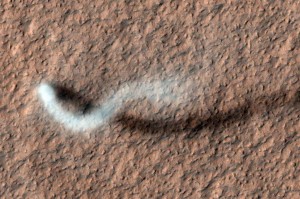EAS 4370/6370
Professor: James J. Wray
Email: jwray@eas.gatech.edu
Class: Mon., Wed., Fri., 11:05-11:55 am in ES&T L1125
Office hours: Directly after class on Wednesdays in ES&T 2234 (12-1 pm), or by appointment.
Course website: http://wray.eas.gatech.edu/physicsplanets2016/
In this course we will study the forces and influences that determine the composition, structure and evolution of the planets in our solar system. The keys to understanding solar system formation and evolution reside in observable planetary characteristics and those inferred from theory and indirect observation. This understanding has evolved over the last several hundred years as telescope technology and space travel have enhanced our ability to make sophisticated measurements of much of the solar system. Students will gain an overall understanding of the physics governing the orbits, surfaces, subsurfaces, atmospheres and magnetospheres of the planets and planetary systems (moons and rings). These concepts will be placed in the context of current formation/evolution theories, and related open science question will be discussed in terms of potential spacecraft missions.
Topics Covered
Solar System Overview
Orbital Dynamics
Energy Transport
Atmospheric Properties
Planetary Surfaces
Planetary Interiors
Physics of Magnetospheres
Planetary Formation
Astrobiology
Grading
There will be roughly 7 graded homework assignments, and weekly reading assignments to support the lectures. Homework sets will be due at the beginning of class. Late assignments will be deducted 20% if turned in by the following class day, but will not be given credit after that unless exceptional circumstances are demonstrated. While you are both allowed and encouraged to work together on the homework assignments, you must turn in your own original work, and you will be responsible for individually understanding the material. There will be one midterm and one final exam (equally weighted), and a final project consisting of a research term paper and an oral presentation. The course grading breakdown is as follows:
Homework problem sets: 30%
Exams (equally weighted): 35%
Final Project: 30%
Class Participation: 5%
Textbook
The required text for the class is Planetary Sciences, Updated 2nd edition, by Imke de Pater and Jack Lissauer.

